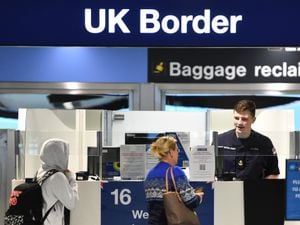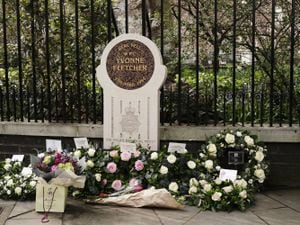Debt collector shot in ‘cold-blooded execution’, court told
Ramane Wiggan died after being shot in London in 2019.

A debt collector was shot dead in a “deliberate, planned and cold-blooded execution”, a court has heard.
Ramane Wiggan, 25, was allegedly lured to a balcony at a block of flats in West Norwood, south London, on the afternoon of March 27 2019.
He was then shot from behind with a Glock pistol which was fired twice, with one bullet travelling through his chest rapidly leading to his death, the Old Bailey was told.
Jurors heard how the victim had gone to meet his alleged killer, Kaine Gilead, to collect a debt of some £10,000.
Two people in motorcycle helmets were directly involved in the shooting and had travelled to and from West Norwood on a Piaggio Beverly moped, jurors heard.
CCTV analysis suggested the pillion passenger, who ran across the road near the block of flats, was the defendant, it was claimed.
The next day, Gilead, 25, went into hiding in Liverpool and went to some lengths to avoid detection, jurors were told.
However, the court heard he was linked to the killing by mobile phone contact with the victim.
He allegedly had three mobile phones, one of which was only ever used on the day of the shooting.
The last call Mr Wiggan made was to this phone, less than three minutes before he was shot, the court heard.
Cell site analysis also allegedly placed the defendant’s phone in the area around 15 minutes before the killing.
Duncan Atkinson QC said: “The prosecution case is that this defendant is caught in this web of evidence and that analysis of CCTV, telephone and cell site analysis show him to have played an important part in the deliberate, planned and cold-blooded execution of Ramane Wiggan.”
The prosecutor said that Mr Wiggan was “executed as a result of a deliberate plan of a group of people almost certainly in connection with their involvement in the supply of, and debts relating to, drugs”.
Because they took precautions to conceal their involvement it was not possible to say “with certainty” who ordered the killing or who fired the fatal shot, jurors were told.
Mr Atkinson said: “The evidence does, however, demonstrate that Kaine Gilead played an integral part in this murder.”
The prosecutor said the location for the killing was chosen because it was not covered by CCTV and the “pre-planned operation” could be carried out with little chance of being disturbed.
Jurors were told that much of the evidence was not disputed and the issue in the case was its interpretation and the conclusions that could be drawn from it.
Gilead, of Surbiton, Surrey, has denied a single charge of murder.





